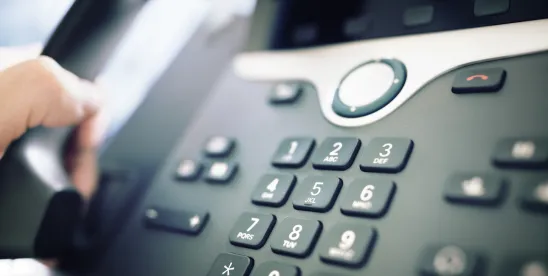On December 30, 2019, the President signed into law the Pallone-Thune Telephone Robocall Abuse Criminal Enforcement and Deterrence Act (Pallone-Thune TRACED Act), which amends existing laws governing robocalls and caller ID spoofing. As reported in our December TCPA Legislative Digest detailing the legislation, the bill passed the House on December 4, 2019, after months of negotiations between key members of the House Energy & Commerce Committee and the Senate Commerce, Science and Transportation Committee.
The Pallone-Thune TRACED Act is a far-ranging law that takes many actions intended to reduce robocalls and spoofed calls. One important requirement found in the law is that voice service providers must implement SHAKEN/STIR at no additional cost to consumers. The Pallone-Thune TRACED Act also creates a safe harbor that shields voice service providers from liability when they unintentionally or inadvertently block or misidentify calls, so long as the provider used “reasonable care” and relied on the mandated call authentication framework. The law increases penalties and provides other tools for cracking down on robocalls. It requires the FCC to initiate a rulemaking to further help protect consumers from spam calls and texts — an effort that was underway before the bill was signed into law.
Some of the important deadlines imposed by the Pallone-Thune TRACED Act include:
|
Deadline |
Description of Obligation |
|
March 30, 2020 |
The FCC must issue rules to establish a registration process for a private consortium that will conduct efforts to trace back illegal robocalls to their source. |
|
April 28, 2020 |
The FCC must initiate a proceeding to protect consumers from one-ring scams. |
|
September 25, 2020 |
The FCC must prescribe regulations implementing the new provisions imposing increased penalties for robocalls and spoofed calls. The Department of Justice must establish an interagency working group to review barriers to enforcement of robocall and spoofed call rules. |
|
December 30, 2020 |
The FCC must issue best practices for implementing the SHAKEN/STIR framework. It also must make a number of reports to Congress, including on
|
|
December 30, 2020 |
The FCC must promulgate rules that establish when calls may be blocked on an opt-out or opt-in basis and that provide a safe harbor for unintended or inadvertent blocking of calls or the misidentification of calls based on the framework. It also must establish a process for providing transparency on blocked calls and allow redress for callers who are being blocked, as well as ensure that calls originating from carriers exempted from the authentication requirements and emergency calls are not blocked. |
|
June 30, 2021 |
Carriers must implement SHAKEN/STIR. The deadline does not apply if a carrier has adopted SHAKEN/STIR and begun to implement it in 12 months and will have fully implemented it within 18 months. |





 />i
/>i

